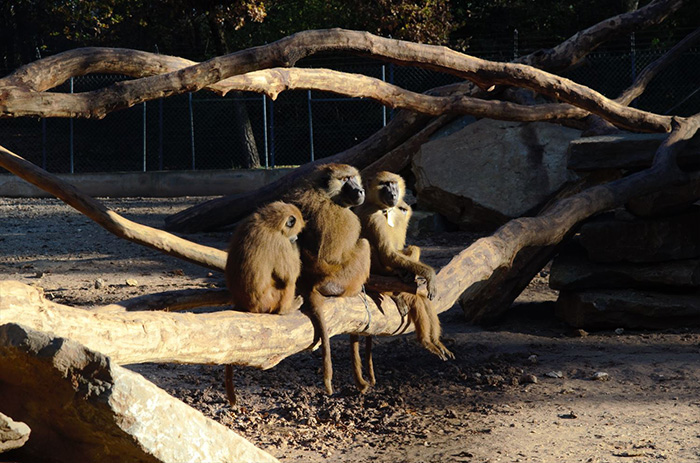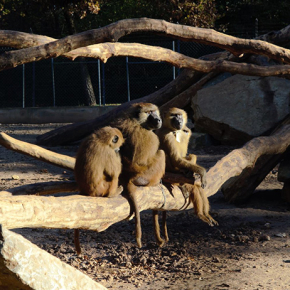
Like humans, baboons are strategic cooperators
A team led by CNRS scientists1
has discovered that, just like humans, Guinea baboons develop complex strategies to select partners for cooperation, basing their decisions on past interactions. Humans naturally engage in strategic cooperation in many contexts. For example, when children help schoolmates by lending them their class notes, they may expect the same in return the next time: this is known as reciprocity. But if the favour is not returned, they are likely to seek others with whom to cooperate.
The team’s findings are the fruit of observations at the CNRS Rousset-sur-Arc Primate Centre. The 18 baboons in their study were free to engage or not in the experimental task, which involved an ‘actor’—i.e., decision-making—baboon and a ‘receiver’ baboon. The actor chose between two buttons on a touchscreen: one rewarded the receiver; the other did not. The researchers noted actors more often rewarded receivers who had previously rewarded them. On the other hand, the likelihood of an actor abandoning the task to find another partner was greater when the receiver had earlier made a selfish choice.
The results of the study, to be published in Science Advances (27 October 2023), show that strategic cooperation among humans is a behaviour inherited at least 30 million years ago from an ancestor shared with baboons.

© Nicolas Claidière
- 1Affiliated with the Laboratoire de Psychologie Cognitive (CNRS / Aix-Marseille University)
Baboons are strategic cooperators. Anthony Formaux, Dan Sperber, Joël Fagot and Nicolas Claidière. Science Advances, 27 october 2023.
DOI : doi.org/10.1126/sciadv.adi5282


